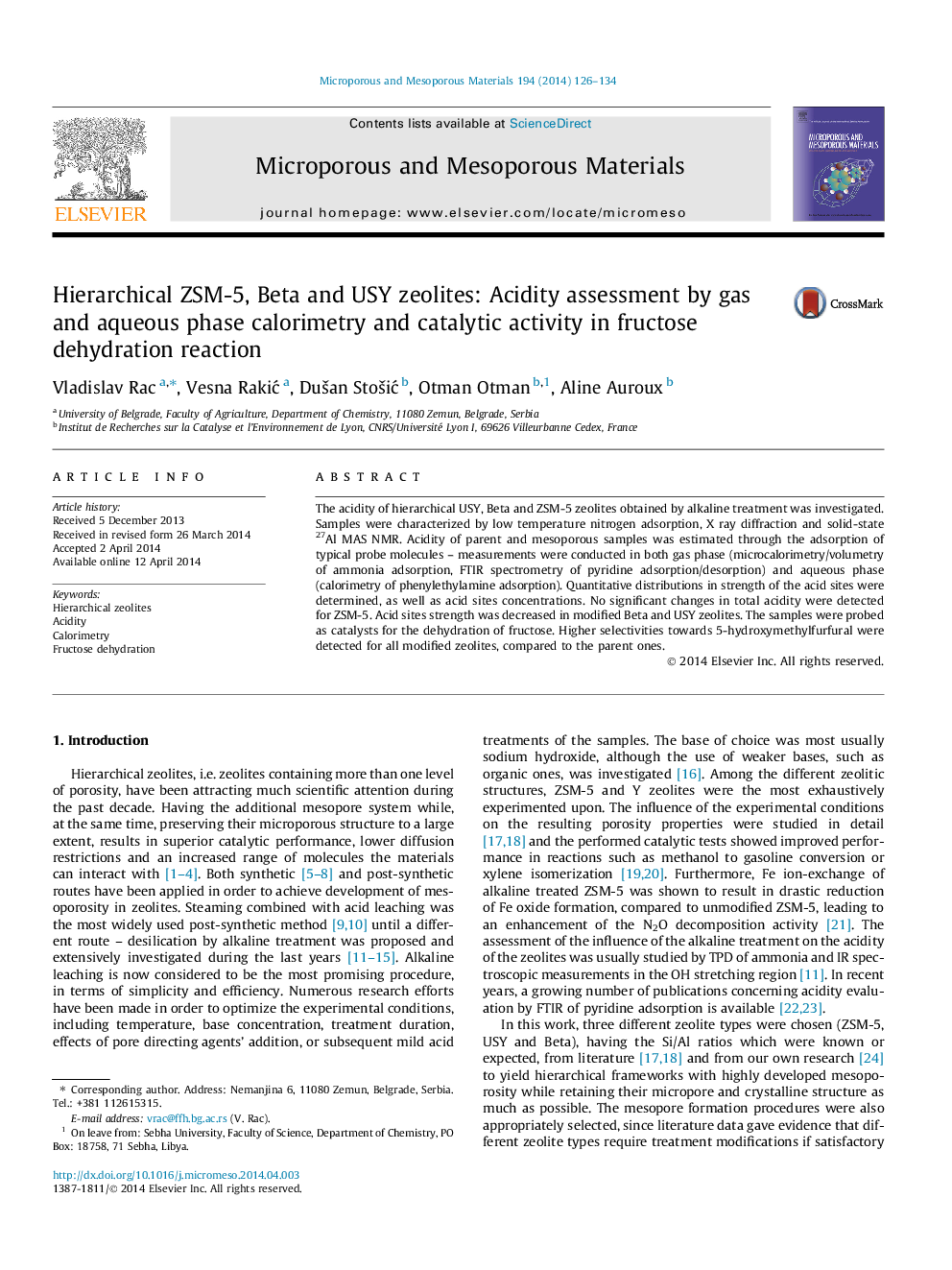| Article ID | Journal | Published Year | Pages | File Type |
|---|---|---|---|---|
| 73075 | Microporous and Mesoporous Materials | 2014 | 9 Pages |
•Hierarchical USY, ZSM-5 and Beta zeolites were prepared via alkaline treatment.•Acidity was determined using calorimetry of ammonia and phenylethylamine adsorption.•ZSM-5 was shown to be the most stable in terms of acidity preservation.•Mesopore formation in USY and Beta resulted in decreased acid sites’ strengths.•Mesoporous samples exhibit higher HMF selectivities in fructose dehydration reaction.
The acidity of hierarchical USY, Beta and ZSM-5 zeolites obtained by alkaline treatment was investigated. Samples were characterized by low temperature nitrogen adsorption, X ray diffraction and solid-state 27Al MAS NMR. Acidity of parent and mesoporous samples was estimated through the adsorption of typical probe molecules – measurements were conducted in both gas phase (microcalorimetry/volumetry of ammonia adsorption, FTIR spectrometry of pyridine adsorption/desorption) and aqueous phase (calorimetry of phenylethylamine adsorption). Quantitative distributions in strength of the acid sites were determined, as well as acid sites concentrations. No significant changes in total acidity were detected for ZSM-5. Acid sites strength was decreased in modified Beta and USY zeolites. The samples were probed as catalysts for the dehydration of fructose. Higher selectivities towards 5-hydroxymethylfurfural were detected for all modified zeolites, compared to the parent ones.
Graphical abstractFigure optionsDownload full-size imageDownload as PowerPoint slide
